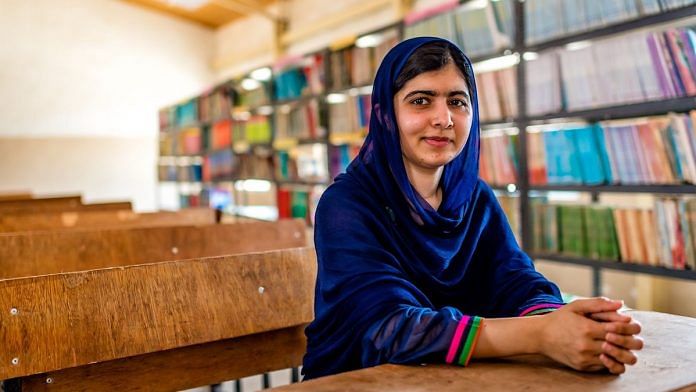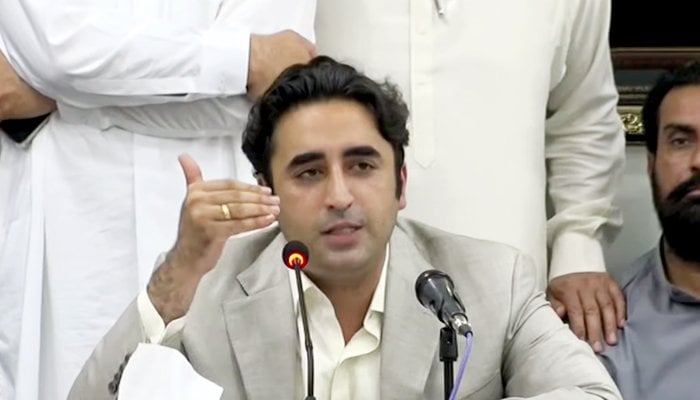M WAQAR..... "A man's ethical behavior should be based effectually on sympathy, education, and social ties; no religious basis is necessary.Man would indeed be in a poor way if he had to be restrained by fear of punishment and hope of reward after death." --Albert Einstein !!! NEWS,ARTICLES,EDITORIALS,MUSIC... Ze chi pe mayeen yum da agha pukhtunistan de.....(Liberal,Progressive,Secular World.)''Secularism is not against religion; it is the message of humanity.'' تل ده وی پثتونستآن
Tuesday, July 13, 2021
Before Balochi Insurgents, Imran Khan Needs To Talk To Army – OpEd
https://www.eurasiareview.com/13072021-before-balochi-insurgents-imran-khan-needs-to-talk-to-army-oped/
#Pakistan's Another attempt of deception
https://balochwarna.com/2021/07/07/another-attempt-of-deception/
Pakistan seizes textbook for printing Malala’s picture in list of important personalities
The Punjab Curriculum & Textbook Board also confiscated a book published by Oxford University Press for printing Malala's picture alongside that of military officer Maj Aziz Bhatti.
Pakistan authorities have confiscated copies of a school textbook in Punjab province for printing the picture of Nobel laureate Malala Yousufszai in the list of important personalities, apparently unhappy with the UK-based activist’s controversial views on Islam. The youngest Nobel Prize laureate, Malala, who turned 24 on Monday, is known for human rights advocacy, especially the education of women and children in her native Swat Valley in Khyber Pakhtunkhwa province in northwest Pakistan, where the local Tehrik-i-Taliban Pakistan had at times banned girls from attending school. Pakistan’s private schools’ association on Monday had launched a documentary on Malala for her controversial views on Islam, marriage and her pursuit of the Western agenda.On the same day, the Punjab Curriculum and Textbook Board (PCTB) confiscated the social studies book for grade 7 published by the Oxford University Press (OUP) for printing the picture of Malala alongside that of military officer Maj Aziz Bhatti, who was killed in the 1965 war with India, in the list of important personalities, the Dawn newspaper reported on Tuesday. Besides Malala and Bhatti, pictures of some other important personalities were published on page 33 of the book that included Pakistan’s founder Muhammad Ali Jinnah, poet Allama Iqbal, educationist Sir Syed Ahmed Khan, first prime minister Liaqat Ali Khan and legendary philanthropist Abdul Sattar Edhi. Malala at the age of 17 was the co-recipient of the 2014 Nobel Peace Prize for her struggle against the suppression of children and young people and for the right of all children to education. She shared the prize with Kailash Satyarthi, a children’s rights activist from India. Quoting sources, the report said the books were already circulated in various educational institutes and the PCTB, police and other agencies were conducting raids on shops to confiscate copies of the book. On Monday, a team of officials conducted a raid on the OUP office in Mini Market, Gulberg area of Lahore and confiscated the entire stock of the book. They also handed over a letter to the press, stating that the book had not been issued a No-Objection Certificate (NOC).Quoting a publisher, the report said the book was submitted to the PCTB for a review and to seek an NOC in 2019. The board, after reviewing its contents, did not approve it for publishing.The Oxford University Press has published the book despite not being issued the NOC, the publisher said. Addressing a press conference at his office in Gulberg in Lahore on Monday, the All-Pakistan Private Schools Federation president Kashif Mirza had said: Through this documentary film — I am not Malala – we will tell 20 million students in 200,000 private schools across the country about her controversial views on Islam, marriage, pursuing of Western agenda.” The idea behind this is we want to expose Malala among the youth as it does not get impressed by her so-called story of struggle for women’s rights, he said. Mirza said in her book I am Malala , the Nobel Peace winner has written highly controversial content which is contrary to the teachings of Islam, Quranic injunctions, ideology of Islam and Pakistan’s founder Mohammad Ali Jinnah and the Pakistan Army.https://theprint.in/world/pakistan-seizes-textbook-for-printing-malalas-picture-in-list-of-important-personalities/695346/
Bilawal Bhutto will not go to Washington during US visit: top PPP leader
Bhutto arrived in New York today after he departed for the country on Sunday. His visit generated accusations from the PTI that the PPP leader was seeking a "backdoor deal" from Washington.
The PPP had shot down the allegations, lashing out at the "puppet government" for creating a hue and cry over the PPP leader's personal visit.
After landing in New York, the PPP chairperson refused to speak to the media, saying he is on a "personal visit" to the US.
"When I come here next, in September, I will then speak to the press," he said.
"Bilawal Bhutto will not go to Washington during his visit," clarified PPP-USA President Khalid Awan.
The PPP responded back to Gill's statements, accusing the "puppet government" of being worried about Bhutto's visit for no reason.
"Fawad Chaudhry, Shahbaz Gill and Farrukh Habib are also worried that their leader Imran Khan cannot go to the US without diplomatic immunity because of pending cases in the USA's courts,” PPP Parliamentarians’ Secretary Shazia Marri had said in response to Gill's press conference.
Marri had said Bhutto had hope in the strength in the people of Pakistan and it has been proven how General Elections 2018 were stolen from the PPP by creating obstacles in the party's path.
She had said that it is also on record that those who stole the PPP's mandate have been admitting that opponents of the PPP have been brought to power through rigging in elections.
https://www.geo.tv/latest/359595-bilawal-bhutto-will-not-visit-washington-during-us-visit-ppp


